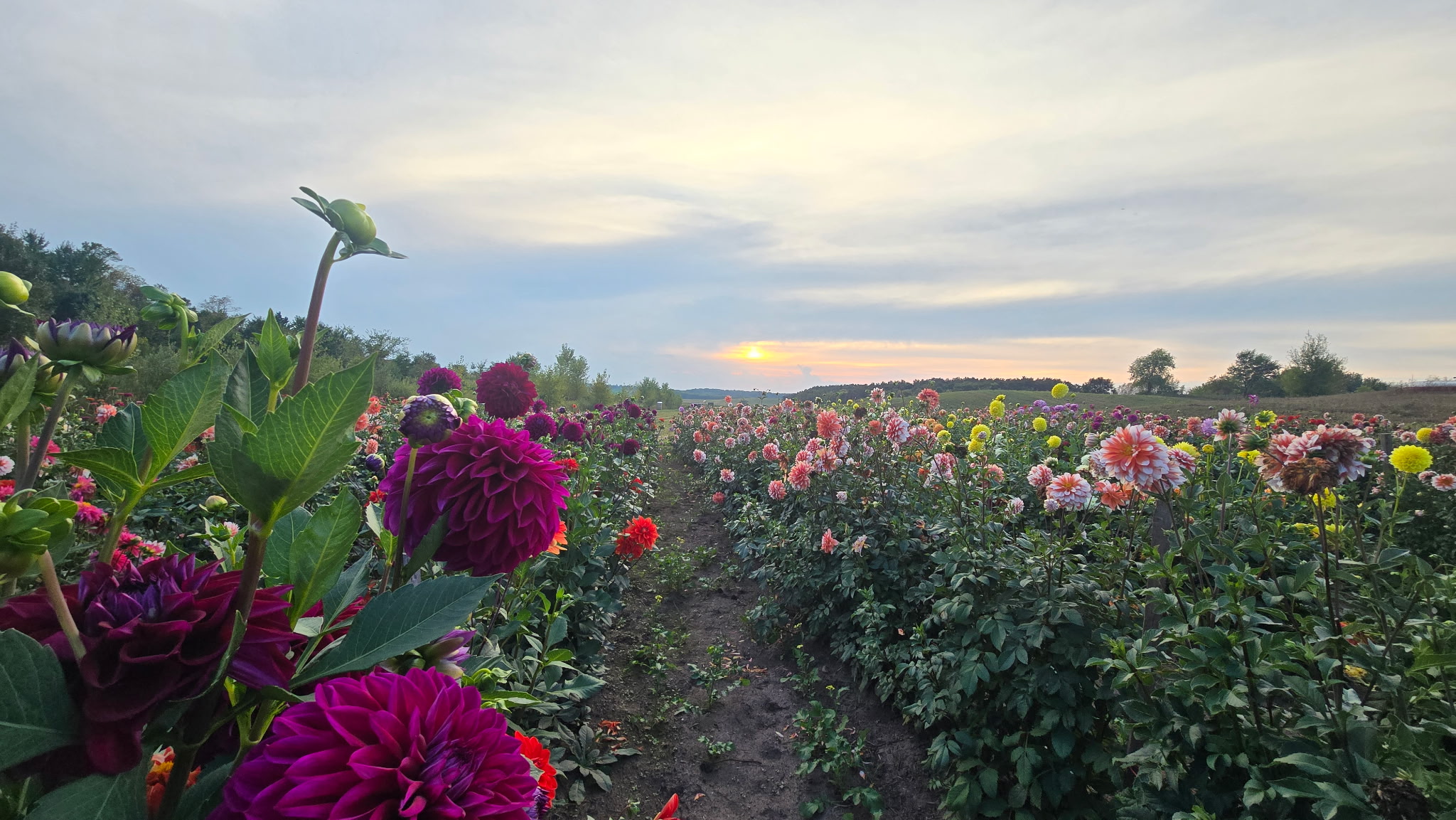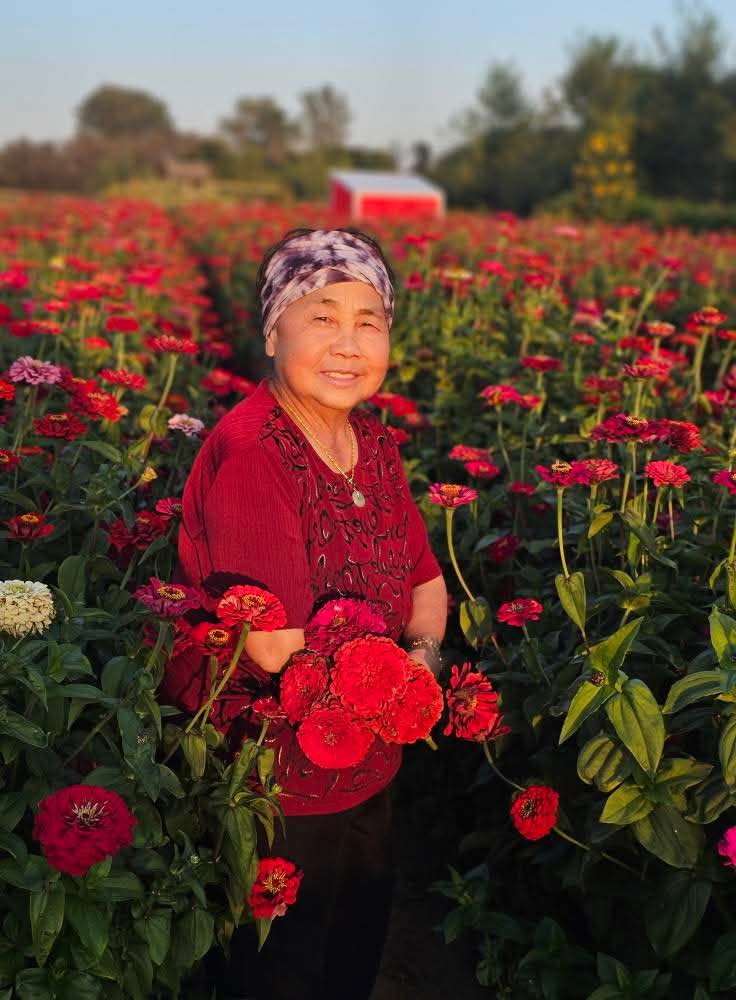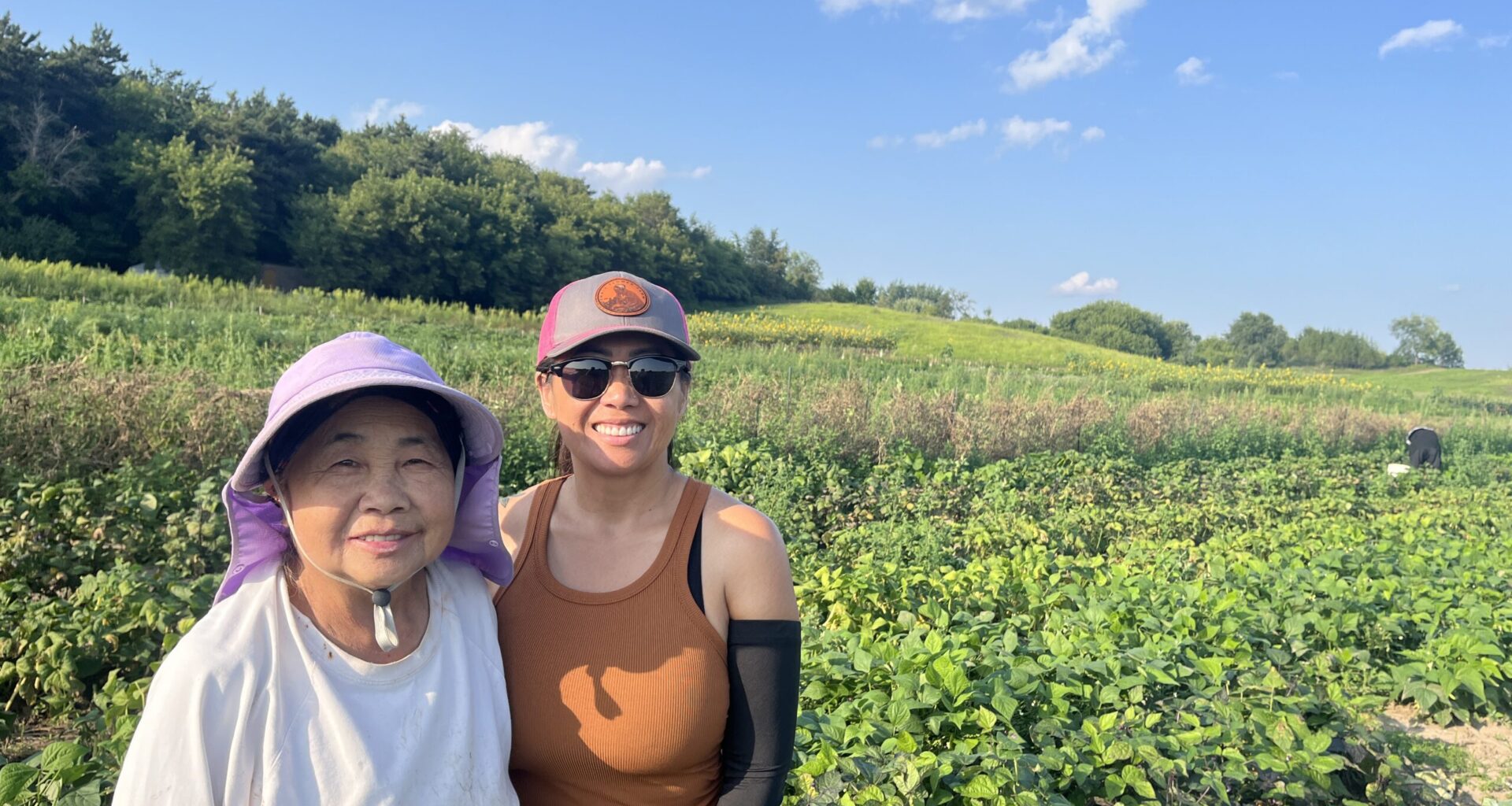Pa Thao moved to the Eau Claire area with her mother, Maiv Xee Xiong, and several siblings in December 1994. They were refugees from the Laotian Civil War and had been living in a camp in Thailand.
“We came without coats because no one prepared us for winter,” said Thao, remembering her first time experiencing snow and frigid temperatures.
An even more difficult adjustment for Thao was the American culture. Other children at school made fun of her language and hair.
News with a little more humanity
WPR’s “Wisconsin Today” newsletter keeps you connected to the state you love without feeling overwhelmed. No paywall. No agenda. No corporate filter.
“The hardest part for me was just being a young child and feeling like I don’t belong anywhere,” she told WPR’s “Wisconsin Today.”
A few decades later, Thao has been able to overcome the mindset that she attributes to being a “child refugee who grew up in a refugee household.”
She has been able to do so, in part, by connecting with her mother’s lifelong passion for farming. Five years ago, Thao purchased a 20-acre farm near Eau Claire where the family grows food and flowers to sell at a farmer’s market and to feed themselves. She named Maiv Flower Farm after her mother.
“That sense of belonging really comes from this place,” she said.
 Flowers in bloom at Maiv Flower Farm. Photo courtesy of Pa Thao
Flowers in bloom at Maiv Flower Farm. Photo courtesy of Pa Thao
Connecting to the land
Thao didn’t immediately take to farming. When the family moved here, her mother quickly found a place to grow vegetables and herbs to cook traditional Hmong dishes for her family. Xee Xiong also sold food at markets to bring in extra income.
“I didn’t want to be a farmer. I hated going to the farmers market,” Thao said. “As a young teenager, you don’t want to be at the farmers market every Saturday. It wasn’t a cool thing to do. So I grew up helping my mom, but not really being interested in it.”
Thao earned a degree in social work from the University of Wisconsin-Madison. She cofounded Black & Brown Womyn Power Coalition Inc., which offers training and assistance to victim service providers for sexual and domestic abuse victims.
Her interest in farming began to grow after she returned to Eau Claire and had kids of her own and began to be concerned about their nutrition. And about five years ago, her mom was diagnosed with cancer.
“Farming was a way for me to get closer to her. It was a way for us to spend time together. And so I made it my purpose,” Thao said. “Through all of that, I really discovered how much farming was so a part of who she is and how I also want to grow into.”
Land also has a symbolic meaning for Thao and her mother — it’s what Hmong people have long been denied.
“(Hmong people) have always been forced from one country to the next, being forced from China to Laos, and then to Thailand. And then immigrating here, that sense of belonging was never there for our people when it comes to land,” Thao said. “And for my mom, that yearning to belong somewhere and to have land and to be able to do what she wants and what she wishes, I feel that really deeply in me. And so when I had the opportunity to buy land, that’s what I did. I, you know, put all my eggs in my basket, and I bought this beautiful land for us to be on.”
Thao sees the farm as the culmination of her mother’s dream.
“One of her dreams of coming to America was to give her children an education and for us to live the life that she couldn’t give us in Thailand or in Laos. And for a long time, as far as I can remember, she’s always verbalized wanting to have her own land, wanting to grow her own food and vegetables, and having a place where she can actually feel like it’s hers and she can plant what she wants,” Thao said.
 Maiv Xee Xiong picking flowers at Maiv Flower Farm near Eau Claire. Xee Xiong learned farming from her mother in Laos and relied on those skills to support and feed her family in the United States. Photo courtesy of Pa Thao
Maiv Xee Xiong picking flowers at Maiv Flower Farm near Eau Claire. Xee Xiong learned farming from her mother in Laos and relied on those skills to support and feed her family in the United States. Photo courtesy of Pa Thao
Anti-immigrant climate
Thao knows this is a precarious time for immigrants and refugees in the United States, as the Trump administration has attempted to block any more refugees from coming here and moved to deport all immigrants who are here illegally.
“It’s really worrisome. I was born in a refugee camp, you know, and a lot of my community members who are deported or have final orders are also people that were born in refugee camps,” she said, referring to efforts to now deport Hmong refugees from the United States. “And they are sending Hmong, the Southeast Asian folks, back into countries that we never grew up in.”
“I wasn’t born in Laos. I don’t speak Lao. I don’t know anything about the culture, the political climate, or any of the nuances that make you feel as if you’re part of a community,” Thao added. “And so our communities are hurting from all of this. But one of the things that keeps me grounded is to enjoy the little things that I can, and to actually take joy in what I can when I can.”
Thao translated as “Wisconsin Today” asked her mother how farming is different in Wisconsin, compared to Southeast Asia.
“She says all the forming skills that she uses every day now, she learned for her mom. Growing up, her mom also had a very strong entrepreneur spirit. And she remembers her selling things like soap and other commodities to the community, back in Laos, and growing food and selling that to the community,” Thao said.
“Wisconsin Today” also asked Xee Xiong how it feels for her family to finally have a piece of land to call their own.
“She says she’s very happy to have her own piece of land that belongs in our family,” Thao said. “As a people, when we are moving from place to place and we never have our own country, to always make home of where we’re at, right? And so we’re here, in America. … Be respectful of other people around us and of the government. But to have your own land, your own little piece of land — she’s very happy that she’s able to have that.”
